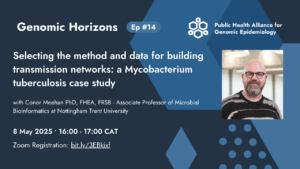PHA4GE’s Ethics and Data Sharing Working Group have published a paper providing a framework for the promotion of ethical benefit sharing in health research.
The paper highlights on how benefit sharing in research programmes requires more
recognition especially in translation and practical implementation. Evidence is provided
where in the global South, inequities and misuse sometimes characterize health and
genomics research. A two-dimensional framework is proposed that promotes benefit
sharing in health research.
The first dimension is a socioecological model that identifies various stakeholders involved in
health research. These stakeholders cut across the micro, meso and macro levels of health
research and their interactions are juxtaposed with the achievement of specified sustainable
development goals (SDGs).
The second dimension gives definitions of nine different types of benefit sharing that can be
implemented and how they can be implemented. While financial benefit sharing is classified
as the most common form of benefit sharing, other forms of benefit sharing are classified.
These are the “intangible” types of benefits that include: health and wellbeing, infrastructure,
equipment, skills capacity, knowledge, services capacity and career development, attribution
and recognition.
The authors emphasize on how researchers can use this framework when designing a new
research programme. By referring to the example matrix provided in the paper, it would
assist in imagining practical ways to benefit share in the research programme.

Selecting the method and data for building transmission networks: a Mycobacterium tuberculosis case study
We’re excited to announce Episode 14 of the Genomic Horizons Webinar Series, featuring a talk by Conor Meehan, PhD, FHEA, FRSB, Associate Professor of Microbial Bioinformatics at Nottingham Trent University.


